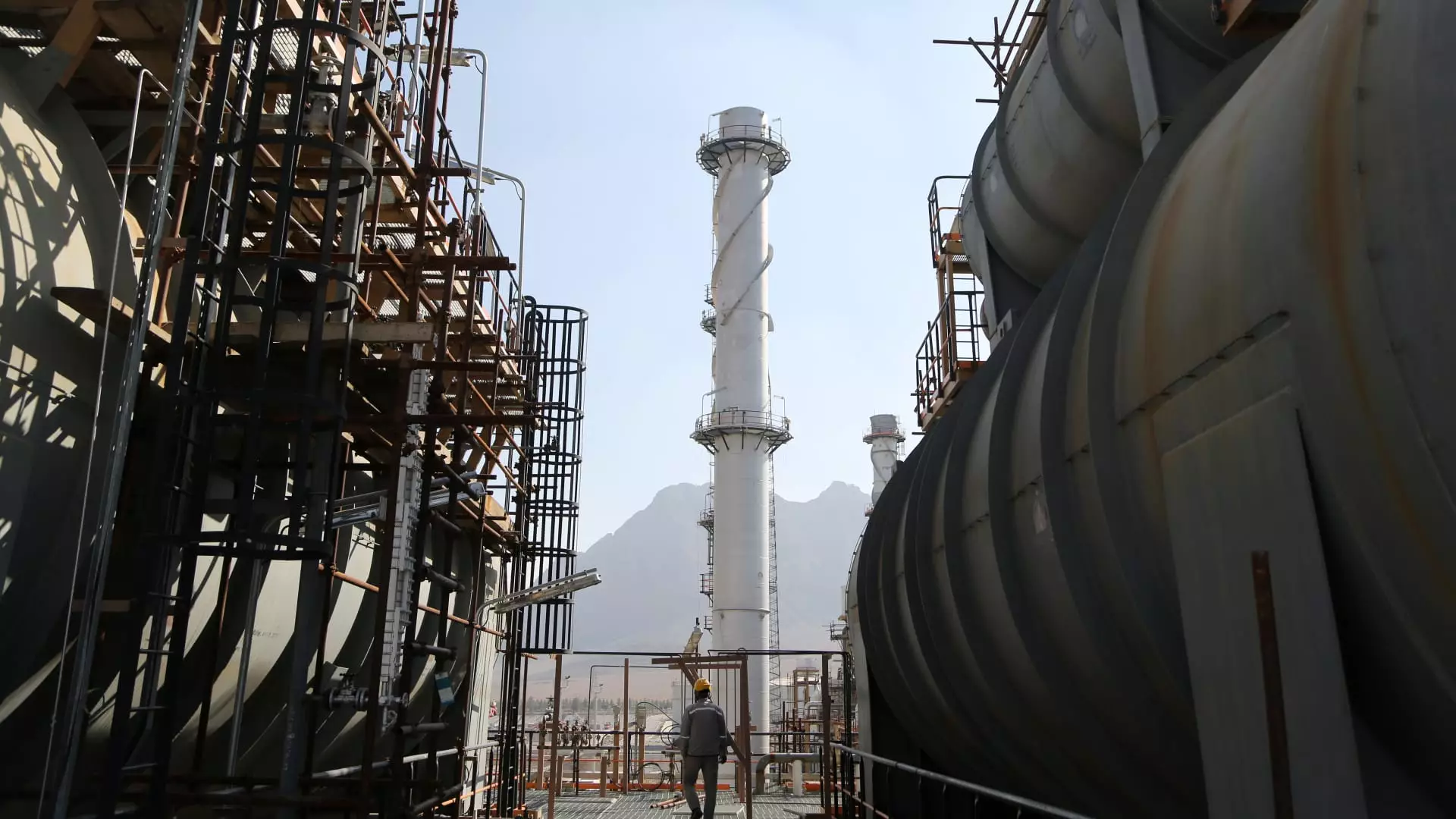Recent developments in the Middle East have ignited fresh concerns among oil analysts about the stability of global crude supplies. As tensions between Iran and Israel reach a boiling point, fuelled by missile strikes and military operations, the implications for the international oil market are grave. With analysts suggesting that a significant disruption to oil supply may be imminent, the fears of escalating prices and market volatility have returned to the forefront of traders’ minds.
On a tense Tuesday, Iran launched a ballistic missile attack on Israel, marking a decisive response to the alleged executions of several key military figures, including Hezbollah leader Hassan Nasrallah. This act of aggression is not merely a punitive response but a signal of Iran’s readiness to engage more actively in the conflict. Analysts caution that such military actions might make Iranian oil infrastructure a potential target for Israeli counterstrikes, which could dramatically affect the flow of oil from one of the world’s prominent producers.
Saul Kavonic, a senior energy analyst at MST Marquee, articulated that the ramifications of this conflict could threaten up to 4% of global oil supply. The shift from a period of “geopolitical risk fatigue” to a real and present threat is palpable, as traders begin to reassess the potential for disruptions.
The immediate aftermath of the missile strike bore witness to a significant uptick in oil prices, with Brent crude increasing by over 5% before settling to a more modest climb. Currently, Brent is trading near $74.62 per barrel, while U.S. West Texas Intermediate futures have also seen a notable rise. This market reaction underscores the sensitivity of oil prices to geopolitical events, particularly when a major player like Iran is involved.
The situation is complicated further by a combination of other factors, including fluctuating oil production levels from the U.S. and sluggish demand from China. Analysts argue that while the current conflict introduces a significant risk to supply, the overall market has been relatively insulated until now, but as hostilities escalate, this could rapidly change.
As military operations extend beyond Gaza into Lebanon, the conflict takes a turn that may significantly impact energy markets. Bob McNally from Rapidan Energy Group highlighted that Israel’s operations could soon focus more intensively on Iranian interests, leading to what he termed a “more energy-related phase” of the war. With each new military maneuver or counterattack, the specter of oil supply disruptions looms larger.
The predictions from industry experts are equally concerning. Ross Schaap from GeoQuant points out a significant spike in political risk scores, indicating a potential for escalated military confrontations that could lead to widespread disruptions. Moreover, the possibility of sanctions or direct attacks on Iranian oil infrastructure could send prices soaring above $100 per barrel — a scenario that many are now seriously contemplating.
The unfolding crisis in the Middle East carries with it the potential for severe disruptions to global oil supplies. What began as a regional conflict has now expanded into a realm where international markets may face unprecedented volatility. Energy analysts are vigilant, watching closely for signs of further escalation or retaliatory measures that could impact production and export levels.
As this geopolitical drama continues to evolve, stakeholders across the globe must prepare for the possibility that crude oil prices may not only fluctuate but could also escalate to levels that would significantly strain economies already grappling with the impacts of a post-pandemic recovery. The message is clear: the oil market is at a precipice, and unless diplomatic efforts are intensified, the road ahead may be fraught with uncertainty and risk.


Leave a Reply